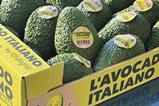New research based on consumer survey in seven countries suggests governments can do more to help people meet WHO’s recommended daily intake
Too many consumers eat too little fruit and veg. And according to a new international survey, that’s because they’re short of time, money, attention, and inspiration.
The survey, which was conducted by Swedish salad marketer and healthy food expert Picadeli, asked consumers in Belgium, Finland, France, Germany, Sweden, the UK and the US about their eating habits.
More than 80 per cent of respondents said they did not eat the 400g of fruit and vegetables per day recommended by the World Health Organization (WHO) for a healthy, balanced diet.
In fact, 45 per cent of those surveyed said they had not even heard of the WHO’s recommendation, and only 16 per cent across all seven countries said they were able to meet it.
The problem appears especially acute in the UK. According to Picadeli, fewer than a quarter of consumers in the country eat the 400g of fruit and vegetables per day recommended by the World Health Organization for a healthy, balanced diet.
Vegetables should play a pivotal role in maintaining a healthy, balanced diet, it says. Yet very few Brits manage to eat their 5 A Day.
According to Picadeli, the main reasons for Brits not eating enough greens are:
* Lack of recipe inspiration (31 per cent)
* Not prioritising it (31 per cent)
* Lack of time (29 per cent)
* Price (27 per cent)
For its annual Vegocracy Report, published this week, Picadeli examines factors that influence and shape consumers’ eating habits, and identifies ways to change them.
“We believe that behavioural change will be the world’s biggest challenge (and opportunity) this year”, said Picadeli chief executive officer David Von Laskowski. “We want to delve deeper into how we drive the change we need to see.”
Last year’s report aimed to raise awareness of the ‘green gap’ and demonstrate that more needs to be done to protect the planet.
This time, it looks at how behavioural change is needed to not view vegetables as an expensive side dish. It also calls on governments to introduce a lower tax rate on fresh produce.
More than two-thirds of survey participants said they believed a reduced tax on fruit and vegetables would encourage them to make healthier food choices in store.
“Alongside education and motivation, consumers need support from government and decision makers as well,” the report concludes.








